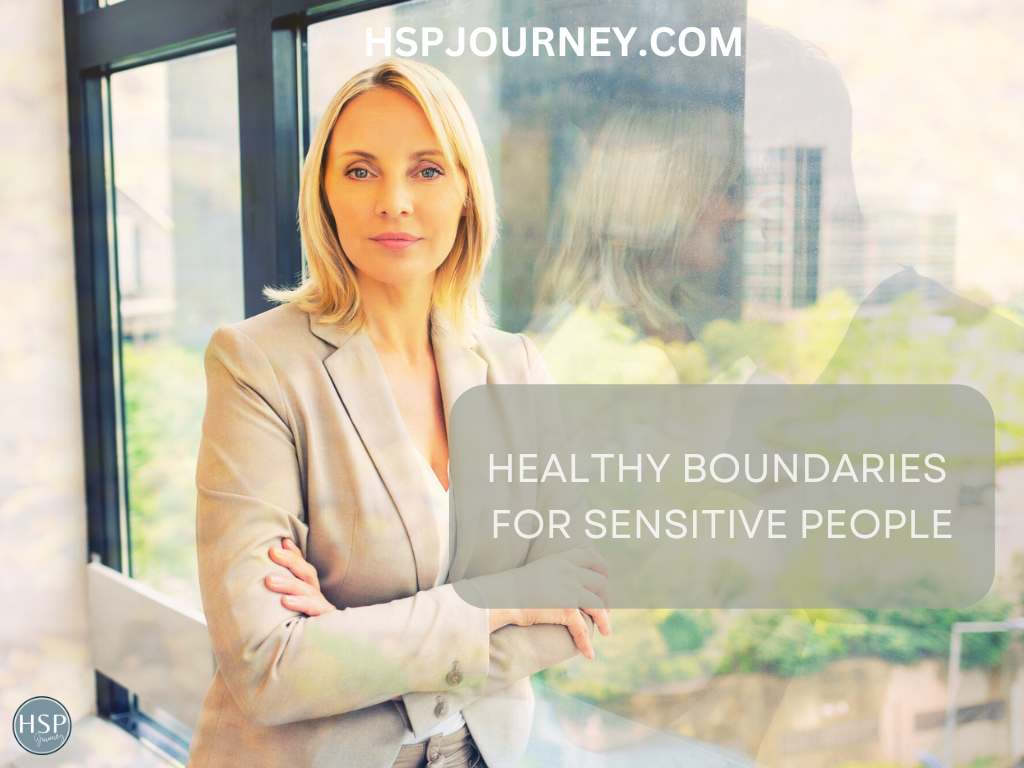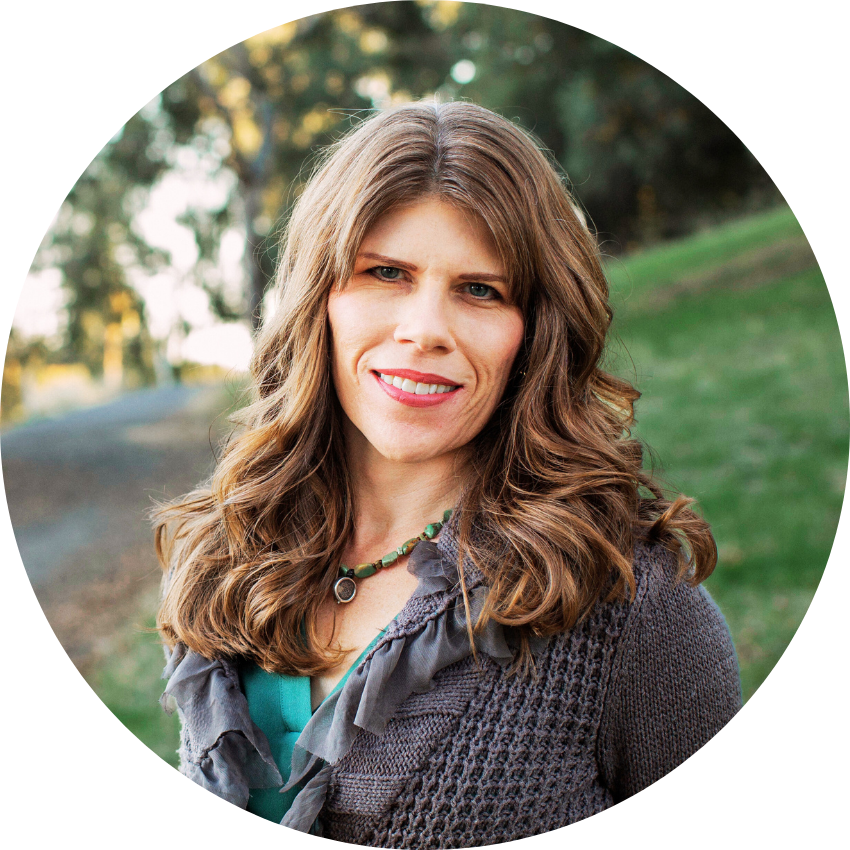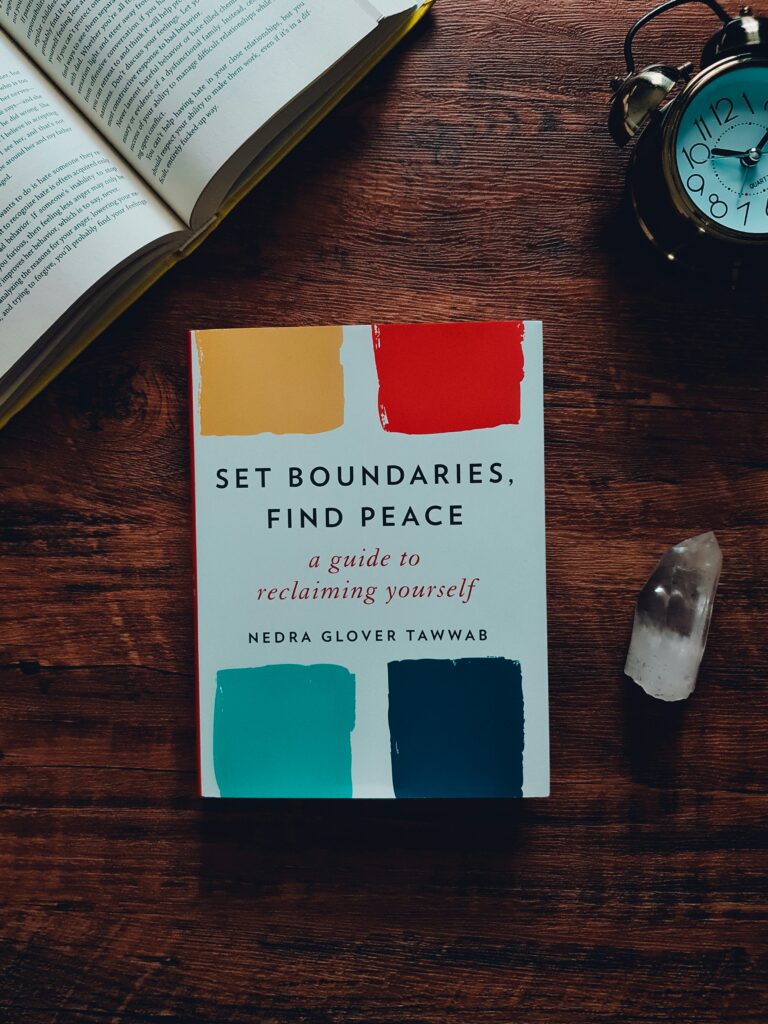Have you ever felt drained after spending time with certain people? Or maybe you’ve struggled to say “no” when asked for favors? I’ve been there too. Setting healthy boundaries is a game-changer for our wellbeing and relationships. Healthy boundaries are the limits and rules we set for ourselves and others that define how we want to be treated. And healthy boundaries are essential for sensitive people.
Boundaries aren’t just about keeping others at arm’s length. They’re essential for building positive relationships and maintaining our own mental health. By clearly communicating our needs and limits, we create space for genuine connections to flourish. I’ve found that my relationships have become more authentic and fulfilling since I started setting clearer boundaries.
It’s important to remember that boundaries aren’t set-it-and-forget-it. They require ongoing attention and adjustment as our lives and relationships evolve. I’ve learned that regularly reassessing and reinforcing my boundaries helps me stay true to myself while nurturing meaningful connections with others. It’s a continuous process, but the rewards are well worth the effort.

Table of Contents
Healthy vs. Unhealthy Boundaries
I’ve learned that healthy boundaries are essential for maintaining positive relationships and self-care. They reflect our personal values and help us communicate our needs effectively.
Healthy boundaries often involve:
- Clear communication
- Respect for others’ limits
- Assertiveness without aggression
- Ability to say “no” when necessary
On the flip side, unhealthy boundaries can lead to stress and conflict. These might include:
- Being overly rigid or inflexible
- Having no boundaries at all (open boundaries)
- Letting others cross our limits repeatedly
I’ve noticed that setting boundaries can be challenging at first. It requires practice and self-awareness to maintain a healthy balance.
In my experience, healthy boundaries help me feel respected and valued. They allow me to honor my personal values while still maintaining meaningful connections with others.
Unhealthy boundaries, however, often leave me feeling drained or taken advantage of. I’ve found that consistently allowing boundary violations can lead to resentment and damaged relationships.
I believe it’s crucial to regularly assess and adjust our boundaries. As our lives change, so do our needs and limits. Maintaining healthy boundaries is an ongoing process that contributes significantly to our overall well-being.
Why Highly Sensitive People Need Good Boundaries
As a highly sensitive person (HSP), I’ve learned that setting and maintaining healthy boundaries is essential for my well-being. HSPs tend to process information more deeply and are often more affected by environmental stimuli.
Without proper boundaries, I can quickly become overwhelmed and drained. It’s crucial for me to recognize my limits and communicate them effectively to others.
Good boundaries help me:
- Manage my energy levels
- Reduce stress and anxiety
- Improve relationships
- Enhance self-awareness
I’ve found that knowing my limits is the first step in setting effective boundaries. This includes understanding what drains my energy and what makes me feel overwhelmed.
One important boundary I’ve set is around my emotional energy. As an HSP, I’m naturally empathetic and can easily absorb others’ feelings. While this is a strength, I need to be mindful of not taking on too much emotional burden.
I’ve also learned to set boundaries around my time. This allows me to have the space I need to recharge and pursue my personal aspirations without feeling guilty.
It’s important to remember that boundaries aren’t static. As I grow and my circumstances change, I need to reassess and adjust my boundaries regularly. This ongoing process helps me maintain a healthy balance in my life as an HSP.
Healthy Boundaries Around Sleep
Setting boundaries around sleep is crucial for self-care and overall well-being. I’ve found that prioritizing my sleep has improved my mood, energy levels, and productivity.
One key boundary I’ve established is a consistent bedtime routine. I turn off electronic devices an hour before bed and engage in calming activities like reading or gentle stretching.
Creating a sleep-friendly environment is another important physical boundary. I keep my bedroom cool, dark, and quiet. I’ve invested in comfortable bedding and use custom vinyl shutters to block out light.
I’ve also set boundaries with others regarding my sleep schedule. This includes:
- Communicating my sleep needs to family and friends
- Declining late-night invitations or plans
- Setting “do not disturb” hours on my phone
Maintaining these boundaries requires ongoing effort. I regularly reassess and adjust my sleep routine to ensure it’s still serving me well.
Sometimes, I need to have difficult conversations with loved ones about respecting my sleep boundaries (like when my husband has a cold and his snoring increases). It’s not always easy, but I remind myself that prioritizing my rest benefits everyone in the long run.
By consistently enforcing these healthy sleep boundaries, I’ve noticed significant improvements in my physical and mental health. It’s a form of self-respect that ripples into all areas of my life.
Healthy Boundaries Around Energy
Setting boundaries around energy is crucial for our well-being. I’ve found that protecting my personal space and emotional energy helps me stay balanced and avoid burnout.
One key aspect is learning to say no. I’ve realized it’s okay to decline invitations or requests that would drain me unnecessarily. This preserves my energy for things that truly matter to me.
Communication plays a vital role in maintaining energy boundaries. I make sure to express my needs clearly and respectfully. For example, I might say:
“I need some alone time to recharge.” “I’d love to help, but I’m at capacity right now.”
Emotional boundaries are essential for protecting my energy. I’m careful about who I share my feelings with and how much I take on others’ emotions. This helps prevent emotional exhaustion.
I’ve learned to recognize signs that my energy is low:
- Feeling irritable or overwhelmed
- Difficulty concentrating
- Physical fatigue
When I notice these signs, I take action to replenish my energy. This might involve taking a break, practicing self-care, or seeking support from trusted friends.
Privacy and autonomy are important aspects of energy boundaries. I make sure to carve out time for myself and respect my own need for solitude. This allows me to recharge and maintain a healthy emotional state.

Looking for an HSP-Trained coach to help you align your life with your priorities?
Through my Highly Sensitive Person (HSP) certification with the Nickerson Institute, as well as being an HSP, I offer HSP coaching to develop specific goals around your HSP needs. We HSPs frequently deal with anxiety and overstimulated nervous systems that prevent us from achieving peace and attaining our life goals. HSP coaching with me includes a detailed review of your sensitivities and a mutually-desired plan for growth and management of this superpower to shift negativity and begin seeing yourself as the hero of your own story. [Coaching packages start at $150 per month.]
Healthy Boundaries Around Romantic Relationships
I believe setting clear boundaries is crucial for nurturing healthy relationships. In my experience, open communication forms the foundation of respectful romantic partnerships.
I also value emotional boundaries. This means respecting each other’s need for privacy and personal space. I communicate when I need alone time to recharge.
Another important boundary for me is maintaining my individuality. I keep my own hobbies, friends, and interests outside the relationship. This helps prevent codependency.
Financial boundaries are crucial too. I’m clear about my spending habits and expectations around shared expenses. This prevents misunderstandings down the road. While I’ve been married 25 years and few things are unknown factors, I make sure to budget personal spending money for my husband and I that we have autonomy over.
I find that boundaries require ongoing maintenance. As relationships evolve, so do our needs and comfort levels. I make it a point to regularly check in with my partner about our boundaries.
Sometimes enforcing boundaries can feel uncomfortable. But I’ve learned that it’s essential for my wellbeing and the health of the relationship. It’s a form of self-care and mutual respect.
Healthy Boundaries Around Parenting
Setting healthy boundaries with parents is crucial for maintaining positive relationships. As an adult child, I’ve learned that establishing clear limits helps foster mutual respect and understanding.
I’ve found that communicating my needs clearly and calmly is essential. This involves expressing my thoughts without aggression or defensiveness. For instance, I might say, “I appreciate your advice, but I’d like to make this decision on my own.”
Healthy parental boundaries also create a sense of safety for children. By setting consistent rules and routines, I help reduce anxiety and uncertainty in my kids’ lives.
Some key areas where I focus on setting boundaries include:
- Screen time limits
- Meal and bedtime routines
- Personal space and privacy
- Respectful communication
I’ve noticed that boundaries require constant maintenance. As circumstances change, I need to reassess and adjust my limits. This ongoing process helps me maintain a healthy balance in my relationships with both my parents and my children.
Family therapy has been a valuable tool in my journey. It’s helped me understand the importance of assertiveness and self-discipline in boundary-setting.
I believe that healthy boundaries allow all family members to thrive. By creating a safe space where everyone’s needs are respected, I foster stronger, more fulfilling relationships with my loved ones.

Healthy Boundaries Around Food
Setting boundaries around food is essential for my physical and emotional well-being. I’ve learned that it’s okay to say no to foods that don’t align with my personal needs. This doesn’t mean I restrict myself, but rather I make choices that support my health goals.
One effective way I’ve found to establish food boundaries is using the DEARMAN method:
- Describe the situation
- Express my feelings
- Assert myself
- Reinforce positive behavior
- Stay Mindful
- Appear confident
- Negotiate if necessary
I’ve noticed that family gatherings can be challenging when it comes to food boundaries. Relatives often push extra servings or make comments about my eating habits. To handle this, I practice clear communication:
“Thank you for offering, but I’m satisfied with what I have.” “I appreciate your concern, but I’m comfortable with my food choices.”
I’ve found that being consistent with my boundaries helps others understand and respect them over time. It’s an ongoing process, but it gets easier with practice.
Healthy Boundaries Around Exercise
Exercise is an important part of a healthy lifestyle, but it’s crucial to set boundaries to prevent overexertion and burnout. I’ve learned that setting healthy boundaries around exercise helps maintain a balanced approach to fitness.
Time boundaries are essential when it comes to exercise. I make sure to allocate specific time slots for my workouts, ensuring they don’t interfere with work or personal commitments. This helps me maintain productivity in other areas of my life.
Flexibility is key in creating sustainable exercise habits. I allow myself to adjust my routine when unexpected events arise, without feeling guilty. This approach helps me stay consistent in the long run.
Intellectual boundaries play a role in exercise too. I’m mindful of the fitness advice I consume, focusing on reputable sources and avoiding unrealistic expectations. This helps me maintain a healthy perspective on my fitness journey.
Here are some strategies I use to maintain healthy exercise boundaries:
- Listen to my body and respect its limits
- Set realistic goals that align with my lifestyle
- Take rest days without feeling guilty
- Prioritize sleep and recovery
- Balance different types of exercise (cardio, strength, flexibility)
By maintaining these boundaries, I ensure that exercise remains a positive and sustainable part of my life. It’s an ongoing process that requires constant attention and adjustment.
Looking for HSP Tools to Thrive in a Chaotic World?
The modern world is often overwhelming and stressful for those of us with sensitive nervous systems. Many of us have suffered from the challenges of high stress, anxiety, sensory overload, and mental health and physical health issues. Fortunately, after years of working with and researching Highly Sensitive People (HSPs), Julie Bjelland has developed many tools that have not only helped her but thousands of HSPs all over the world move out of survival mode living and into thriving. In this free webinar, she’ll share the tools that HSPs have found the most life-changing. Her goal is to help you live to your fullest potential because the world needs you.
Join this free webinar and get tools to help you thrive as an HSP!
Healthy Boundaries Around Mental Health
Setting boundaries around mental health is crucial for my overall well-being. I’ve learned that it’s okay to prioritize my emotional needs and communicate them clearly to others.
One important boundary I’ve established is limiting my exposure to negative news and social media. This helps protect my mental state and reduces unnecessary stress.
I’ve also become more comfortable saying “no” to commitments that might overwhelm me. Healthy boundaries can boost self-esteem and help me stay true to myself.
In therapy, I’ve worked on recognizing and respecting my own emotional limits. This includes:
- Taking breaks when I feel overwhelmed
- Communicating my feelings openly
- Setting aside time for self-reflection
I’ve found that setting clear boundaries has improved my relationships. By expressing my needs, I avoid resentment and foster more authentic connections.
It’s important to remember that boundaries aren’t static. As I grow and change, so do my limits. I regularly reassess and adjust my boundaries to ensure they continue serving my mental health.
Practicing vulnerability has been key in this process. By opening up about my struggles, I’ve created a support network that respects my boundaries and helps me maintain them.
Frequently Asked Questions
Setting healthy boundaries is crucial for our well-being and relationships. I’ll address some common questions to help clarify this important topic.
Can you provide some examples of healthy boundaries?
Healthy boundaries can take many forms. I might tell a friend, “I need some alone time tonight to recharge.” At work, I could say, “I’m not available for calls after 6 PM.” In a relationship, I might express, “I’m comfortable with hugs, but not public displays of affection.”
These examples of setting limits show how I can protect my time, space, and personal comfort.
What distinguishes unhealthy boundaries from healthy ones?
Healthy boundaries are flexible and respectful. I can adjust them as needed while still honoring my needs. Unhealthy boundaries, on the other hand, might be too rigid or nonexistent.
Overly weak boundaries leave me vulnerable, while overly rigid ones can isolate me from others.
In what ways can setting healthy boundaries improve well-being?
When I set healthy boundaries, I reduce stress and prevent burnout. I feel more in control of my life and relationships. My self-esteem improves as I honor my needs and values.
Boundaries help me build positive relationships based on mutual respect and understanding.
How do you effectively communicate your boundaries to others?
I’ve found that clear, direct communication works best. I state what I want without raising my voice or making demands. For example, “I need uninterrupted work time between 9 AM and noon.”
I also explain how the boundary benefits our relationship, fostering understanding and cooperation.
What are some common signs that boundaries are being disregarded?
I feel uncomfortable or resentful when my boundaries are crossed. I might notice increased stress or anxiety. If someone consistently ignores my requests or pressures me to change my limits, that’s a red flag.
Physical signs like tension headaches or exhaustion can also indicate that my boundaries need reinforcing.
Be sensitive, be free
*This post contains affiliate links and I will be compensated if you make a purchase after clicking on my links*





[…] your time and energy to focus on the activities that bring you joy and fulfillment. Establishing boundaries can help you prevent unnecessary stress and […]